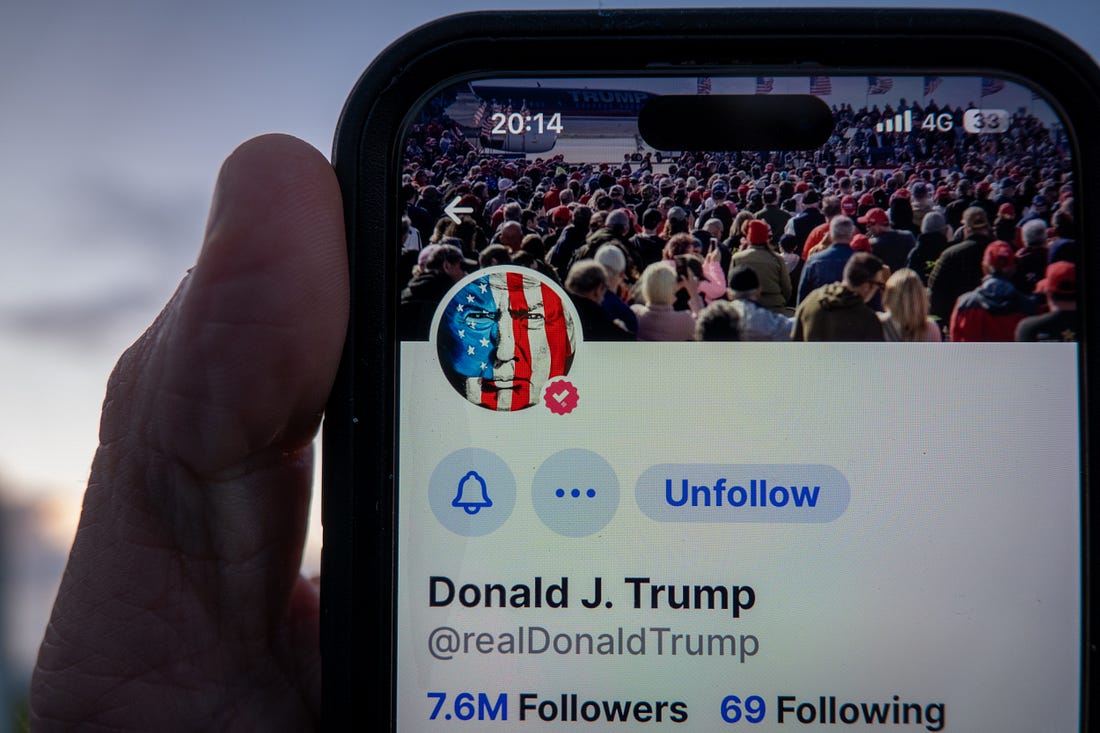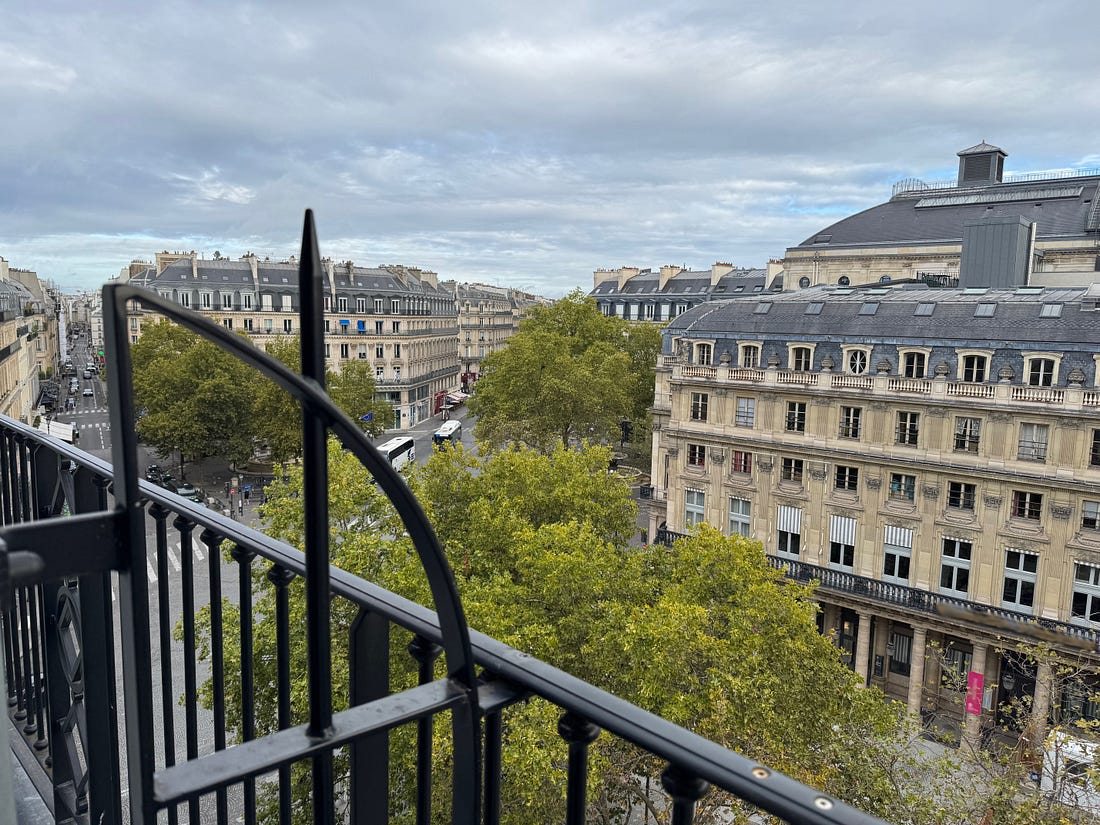Our Post-Literate, Post-Liberal EraThe relentless dumbing down of the discourse empowers strongman populism.I’m sure some of you had something like this moment if you were an adult in the 1990s, but this conversation has stuck in my mind over the succeeding years. At The New Republic when I was editor, one day the business manager, if I recall, decided to bring up a weird subject at the weekly editorial conference. He didn’t usually say much. But he nervously cleared his throat, and stiffened his sinews to ask: What did we think we were going to do about this new thing called the Internet? If discourse went online, as everyone seems to think it will, what would happen to the magazine? Various dismissals and grumbles followed. “But is it good for the Jews?” was the final, sardonic response, and we all laughed. But I remember saying that if the web was what it seemed to be, then magazines would surely cease to exist, because they depended on a weekly or monthly group of writers and articles, held together, by paper and staples. Take the paper and staples away, and nothing coheres in the same way. So we’re doomed, I confidently said. But something else soon became pretty obvious to me: if images and video could be as accessible online as words, they would always win any contest for eyeballs. Visuals carry more visceral punch than sentences and paragraphs, and require less reason and effort. Words would endure, of course, but they would increasingly be spoken and heard, not written or read. The Internet, in other words, held the power to return us to the pre-literate culture from which a majority of humans had emerged only a few hundred years ago: images, symbols, memes. The art of mass deliberation, rooted in reading, reason and thinking, and only really in operation for a couple of centuries or so, was in danger of rapid obsolescence. And that was well before social media and the smartphone. I’m not touting myself as some kind of Cassandra, and my memory is probably flattering me. But, as I tried to imagine practically how a literary and political magazine could adjust to the web, I just didn’t see how it could — except as a peripheral, minor preserve of a few. (Hence my gravitating toward blogging a few years later.) What I failed to consider was how this would have a huge cultural and thereby political effect that would shake the reasoning and deliberating foundations of liberal democracy. It meant we would think and read less, and see and feel more. It meant our attention span would attenuate to make long-form reading rarer and rarer. And that, in the end, would matter. A brilliant little Substack essay last week reminded me of all this in a flash. James Marriott helps you see how a post-liberal politics is deeply related to a post-literate culture. Deep reading is in free-fall everywhere in the developing world, as the smartphone has hijacked our brains. Professors at even elite colleges are finding their students have lost the ability to read at length and in depth; talking has replaced reading; images have replaced ideas; engagement has supplanted reflection; and the various cognitive skills that reading once conferred to the masses since the printing press are fast atrophying. Which cognitive skills? Neil Postman explains in Amusing Ourselves to Death:
No wonder global IQ levels are now falling for the first time. No wonder the reading scores of American high-school students are the worst since 1992, according to a new report. No wonder the next generation communicates in memes, not words, let alone sentences. AI is surely compounding this even further, allowing you to have an increasingly sophisticated bot read something for you. College itself, as a period when you devote yourself to long and deep solitary reading, is becoming obsolete:
No wonder that Gen Z and younger — having been denied the solace of knowing actual history, experiencing serious religious faith, and being transported by big, complex novels into other distant minds and places — feel adrift, searching for meaning and perspective, lost in phones, prey to cults. Trans-furries and budding neo-Hitlers: an emotive, irrational, grievance-obsessed generation of lonely souls — increasingly prone to violence. One reason Trump is president now is because all this made his ascendance possible. A post-literate president rose through the irrational, emotive Twitter revolution, with social media simultaneously making it hard to gain any perspective, overcome any emotional trigger, or concentrate for more than a couple of minutes. I noticed this as the Dish progressed toward its 2009+ era: the perfect pace to maximize traffic was a single brief post every 20 minutes. We had no serious analytics; but you could feel the collective attention span wither and die after a few seconds as surely as that pace and frenzy turned my own brain and body into a twitchy, dopamine-addled fog. You want a perfect example of a post-literate moment? Ponder the UN speech by President Trump this week. Even written down, it was “the weave” — a series of unconnected rants and digressions, baseless assertions and unseemly insults, a stream of addled and angry consciousness with no real relationship to coherence, or reason, or persuasion. Imagine the head of a small country standing up at the UN and saying:
We’d all be embarrassed, no? It would go viral as a cringe clip. But since this absurd, meandering thug is the US president, we let it go. Or consider this gem:
Yeah that’s right: stop all the factories and kill all the cows. If that august body was aghast, it was because few had ever witnessed, outside a comedy movie, the head of state of a country speak like that before: no dignity, no coherence, no real argument as such, just loopy madlibs and inappropriate outbursts: “Your countries are going to hell!” The America whose values many across the world once aspired to is now, in its public posture, coarse, irrational, emotional, petty. It’s a global joke. It’s up there with a Sacha Baron Cohen performance. And then we remember a core truth of this president who so perfectly represents us, something that could not have been said about any other predecessor. Trump has never actually read an entire book. He rarely even reads the daily intelligence brief. He needs pictures and images and people to talk to him. He picks his staffers because they look the part. He darts and lunges this way and that in his policies like a distracted animal: unreasoned, impetuous, feral. We may be witnessing not just our first post-liberal president. We may be staring at our first post-literate one as well. More, no doubt, are on their way. (Note to readers: This is an excerpt of The Weekly Dish. If you’re already a paid subscriber, click here to read the full version. This week’s issue also includes: a small item on the disastrous legacy of Biden and Boris; a discussion with Wesley Yang on the gender revolution; reader dissents over my take on Jimmy Kimmel; eight notable quotes from the week in news; 14 pieces on Substack we enjoyed on a variety of topics; a Mental Health Break poking fun at Portland; a sunny window at the National Harbor; and, of course, the results of the View From Your Window contest — with a new challenge. Subscribe for the full Dish experience!) From a new subscriber:
We’re immensely grateful. The Two Guilty MenIn the story of the West’s 21st Century slide into authoritarian populism, there’s an obvious question future historians will ask: could it have been prevented, assuaged, or managed better? (Read the rest of that piece here, for paid subscribers.) Back On The Dishcast: Wesley YangWesley is an essayist and podcaster. He’s written extensively for Tablet, Esquire, and New York Magazine, and many of his essays were compiled in a book, The Souls of Yellow Folk. More of his writing and podcasting can be found on his substack, “Year Zero.” He’s been chronicling the gender revolution aspect of the successor ideology on X these past few years — and he eloquently lets rip more emphatically than ever in this conversation. Listen to the episode here. There you can find two clips of our convo — on the violence that can spring from trans ideology, and the paralysis of Dems on trans issues. That link also takes you to listener comments on recent episodes and a bunch of reader debate on Jimmy Kimmel and more. Browse the Dishcast archive for an episode you might enjoy. Coming up: Katie Herzog on drinking your way sober, Michael Wolff on Epstein, Karen Hao on AI, Michel Paradis on Ike, Charles Murray on finding religion, David Ignatius on the Trump effect globally, and Arthur Brooks on the science of happiness. As always, please send any guest recs, dissents, and other comments to dish@andrewsullivan.com. From a new subscriber:
Dissents Of The WeekA reader responds to my latest column:
Yes he was. Re-read the sentence. Its premise is that the killer was MAGA, hence the “desperation” of the GOP to claim he wasn’t. Read the rest of my response here, along with two other dissents. Another writes:
Yes, brain fart. Within a couple hours, I fixed it. Thanks for the correction. More dissents are on the pod page, and please keep them coming: dish@andrewsullivan.com. In The ‘StacksThis is a feature in the paid version of the Dish spotlighting about 20 of our favorite pieces from other Substackers every week. This week’s selection covers subjects such as Trump’s lawfare, giving us a headache over Tylenol, and the drone wars. Example below, followed by a couple new substacks:
Here’s a list of the substacks we recommend in general — call it a blogroll. If you have any suggestions for “In the ‘Stacks,” especially ones from emerging writers, please let us know: dish@andrewsullivan.com. The View From Your Window ContestWhere do you think it’s located? Email your guess to contest@andrewsullivan.com. Please put the location — city and/or state first, then country — in the subject line. Proximity counts if no one gets the exact spot. Bonus points for fun facts and stories. The deadline for entries is Wednesday at 11.59 pm (PST). The winner gets the choice of a VFYW book or two annual Dish subscriptions. If you are not a subscriber, please indicate that status in your entry and we will give you a free month sub if we select your entry for the contest results (example here if you’re new to the VFYW). Contest archive is here. Happy sleuthing! The results for this week’s window are coming in a separate email to paid subscribers later today. From last week:
See you next Friday. Invite your friends and earn rewardsIf you enjoy The Weekly Dish, share it with your friends and earn rewards when they subscribe. |
Our Post-Literate, Post-Liberal Era
September 26, 2025
0






